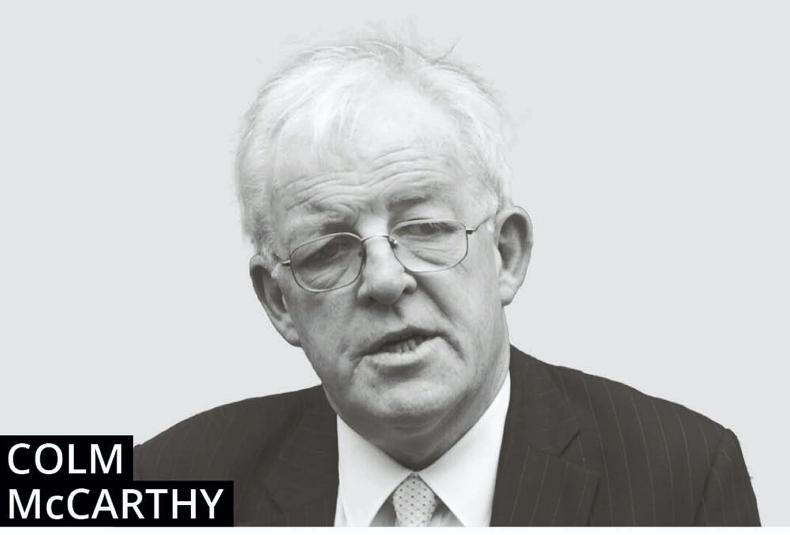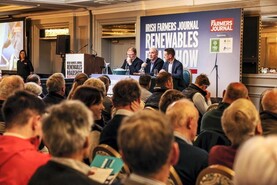Governments around Europe, including the UK and all EU members are preparing detailed plans for rationing gas and electricity over the winter.
In Ireland, the risk of actual supply shortfall is real and in the short-term there is little that the authorities can do, other than devise a fair scheme for curtailing users: it is too late to create additional capacity should problems emerge soon.
A blame game has already commenced, with two State organisations in the firing line, the Commission for the Regulation of Utilities (CRU) and Eirgrid, the State-owned operator of the transmission system.
A Government study on supply security is in draft but has not been released and it is clear that measures to enhance supply diversity and to limit the growth of energy-intensive industries would have been advisable in earlier years.
The immediate political pressure is to alleviate the impact on household incomes and the Government may offer further subsidies to energy users and impose a levy on windfall profits of energy companies, neither of which will supply any extra energy.
The supply security problems will not go away even if Ireland is lucky this winter. There is 75% dependence on pipelines from the UK for natural gas, around half of electricity generation is gas-fuelled and there is no storage or any facility to import LNG, natural gas in liquefied form.
The UK regulator expects gas supply to tighten and the UK is also reliant on gas for power generation.
The UK will be tight for electricity as well as gas, since it normally imports power from continental Europe in winter. Ireland has electricity interconnection and hence import capability, only with the UK, which is also contemplating a rationing regime which would include exports to Ireland.
A major ingredient in the Irish energy crunch is the continuing expansion of the data centre industry, to which the Government has re-committed in recent weeks.
There are 70 data centres here, providing capacity used mainly by overseas customers
The Industrial Development Authority and its parent department, Enterprise Trade and Employment, have doubled down on their commitment to further expansion of data centres, with which Ireland is already awash.
There are 70 data centres here, providing capacity used mainly by overseas customers. On the current trajectory, almost 30% of total power demand, double today’s share, will go to these operations by the end of the decade.
Persisting with the promotion of data centres is a surprising decision: in the face of a pending electricity shortage, the Government has chosen to exacerbate the situation by expanding electricity demand for export.
There is little direct contribution to domestic value added in the data centre industry.
The equipment is mainly imported, there are few employees and the centres consume imported energy rather than intermediate inputs supplied by Irish firms.
They also consume water which is not plentiful in some of their preferred locations. The industry favours Ireland for reasons which include the generous corporation tax regime alongside low connection charges from the electricity grid.
Any big energy user with weak linkages back into the Irish economy and low employment levels, should be high on the target list if electricity has to be rationed.
Industries with higher employment levels and stronger linkages with indigenous suppliers, of which dairy processing is an example, will expect preference over firms whose business involves exporting energy in such enormous volumes.
'Astounded'
Government ministers were reported last weekend to be “astounded” at the emergence of this energy supply emergency and have appointed a retired senior official, Dermot McCarthy, formerly secretary general of the Taoiseach’s department, to conduct a review.
Taoiseach Micheál Martin lamented, in a statement on Sunday last, that there had been no early warning of impending crisis.
The Department of Energy oversees the CRU and Eirgrid as well as Gas Networks Ireland, the gas grid operator. The department should be included in McCarthy’s review, as the unit of central Government ultimately responsible for energy policy.
In 2018, the Irish Academy of Engineering, in a report widely reported in the media, warned about the weaknesses in the gas supply infrastructure, noting that there was no gas storage, no LNG import facility and no policy to find and develop new domestic gasfields to replace dwindling supplies from the Corrib field off Co Mayo.
Action under these heads four years ago would have helped mitigate the crisis that now appears imminent.
The review could also interrogate the policy preferences of the Industrial Development Authority and the Department of Enterprise, Trade and Employment. They appear to have persisted, without any economic analysis to back their position, in the view that hosting data centre business well beyond Ireland’s requirements is a smart strategy.
The country is now lumbered with what is, in effect, an electricity exporting sector. The Taoiseach is mistaken if he believes that there were no early warnings.






 This is a subscriber-only article
This is a subscriber-only article










SHARING OPTIONS: